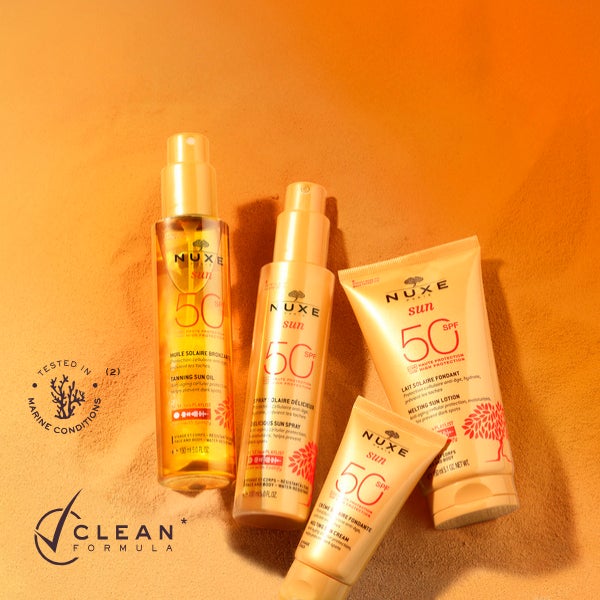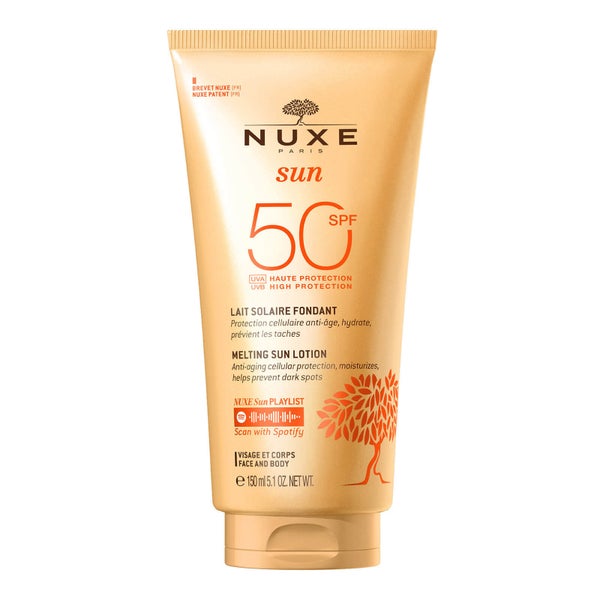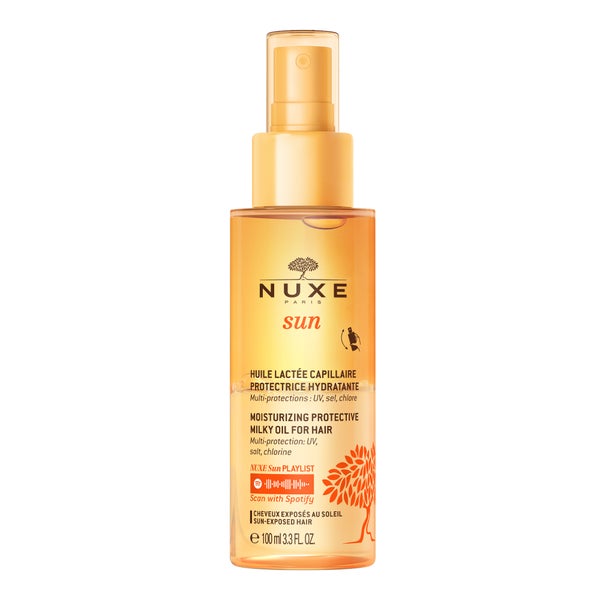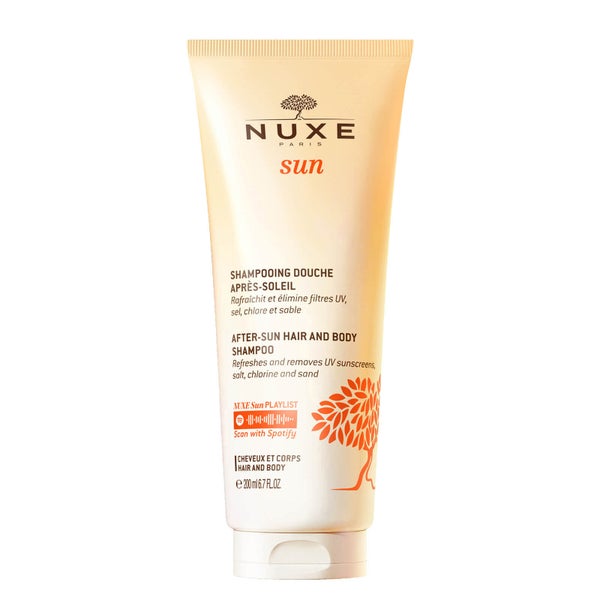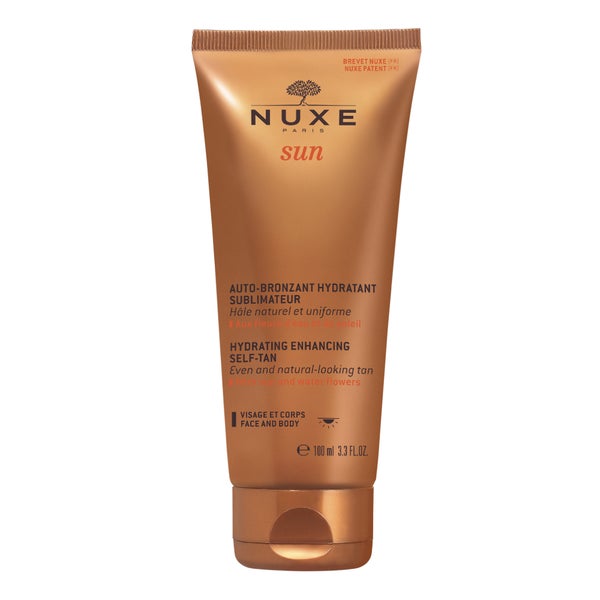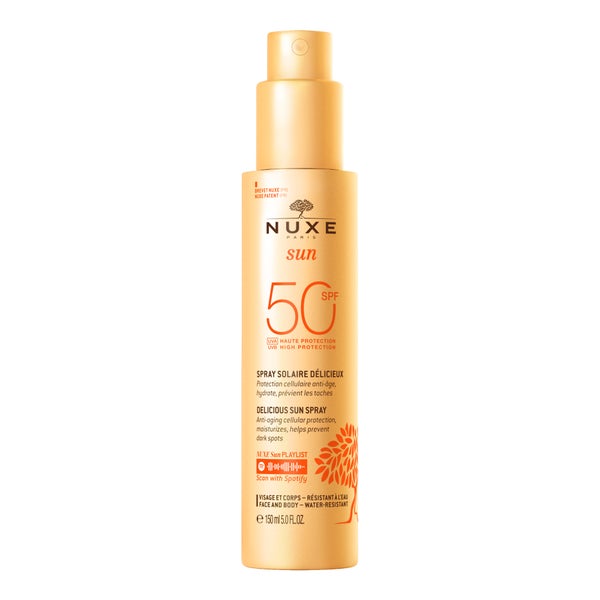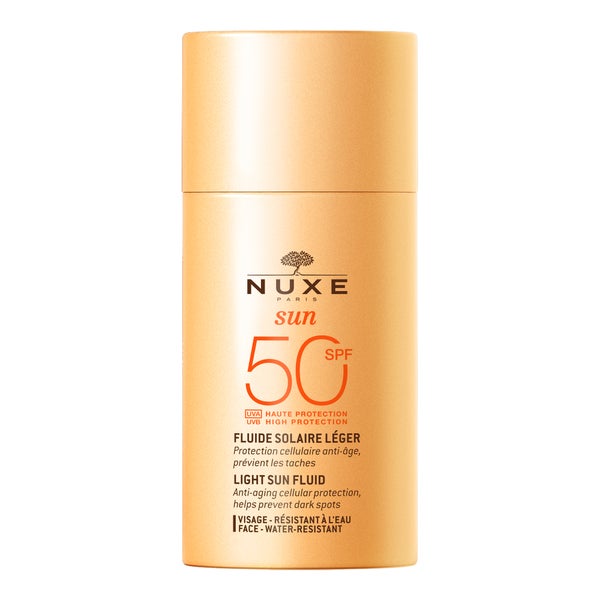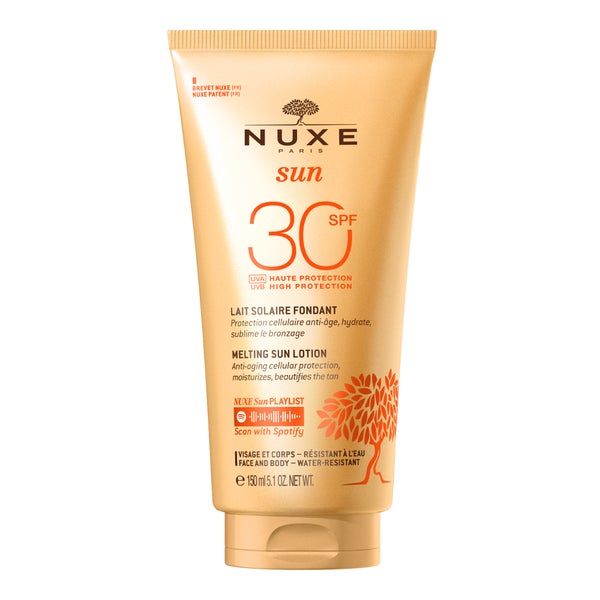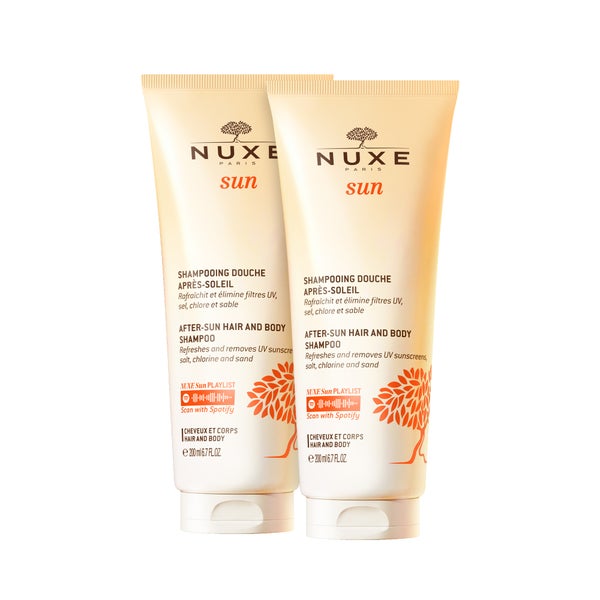NUXE SUN COLLECTION
Added to your basket
Quantity
Subtotal: ( items in your basket)
Added to your basket
Quantity
Subtotal: ( items in your basket)
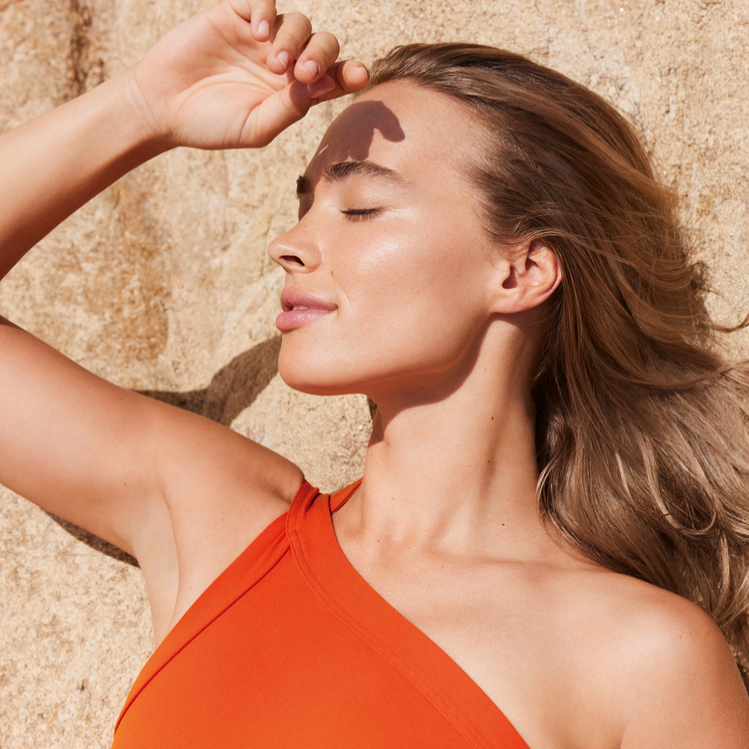
Reinforced anti-aging cellular protection
2 times more UVA protection⁽¹⁾
UVB rays have long been considered to be solely responsible for sun damage to the skin. However, UVA is just as harmful for the skin as these rays lead to the formation of excess free radicals. The formulas of our protection products contain an exclusive patented sunscreen system combining 2 esters and 3 organic filters⁽²⁾, recognised for their proven effectiveness on all UVB and UVA, short and long.
To help limit premature aging of the skin, NUXE Sun protection products have UVA indexes that are, on average, twice as high as the minimum levels⁽¹⁾ required by European regulations.
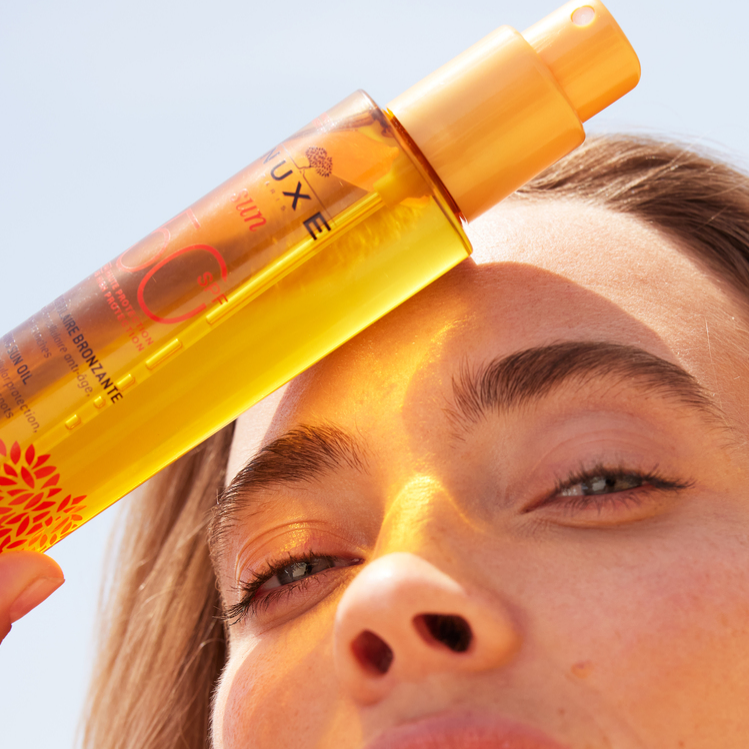 Anti-oxidant cellular protection
Anti-oxidant cellular protection
Anti-oxidant cellular protection
NUXE Sun protection products also contain a 100% natural-origin anti-oxidant duo consisting of Rice and Rosemary extracts. Providing real cellular protection, this botanical duo prevents premature photo-aging of the skin by combatting free radicals.
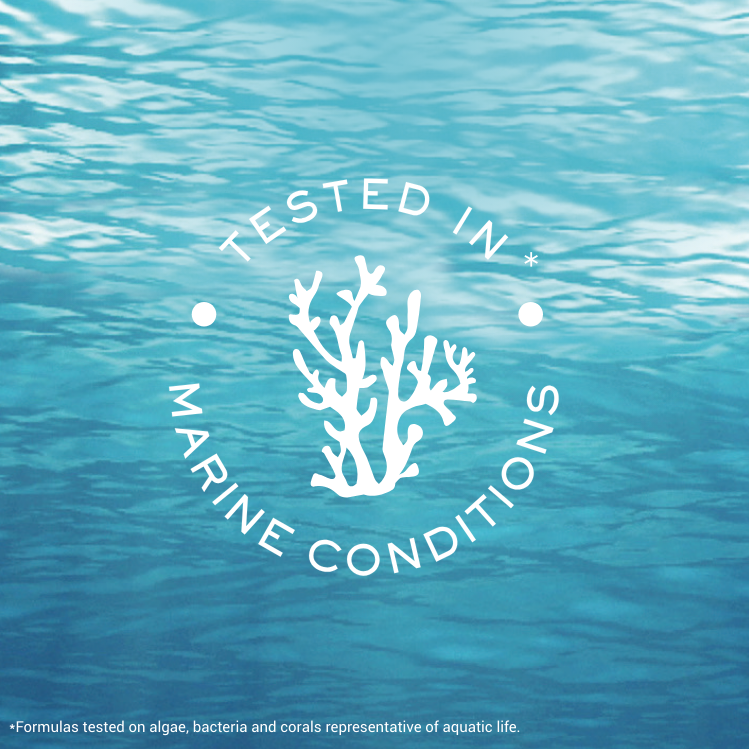
Formulas tested in marine life conditions
According to NUXE’s strict formulation charter, NUXE Sun protection products are developed as part of a continuous improvement approach designed to ensure the best balance between naturalness, effectiveness, sensoriality and environmental footprint, with no compromise on safety.
NUXE Sun formulas have been tested in marine life conditions to ensure a reduced impact on the aquatic eco-system, using 4 complementary tests: on fresh-water algae, marine-water algae, a bacterium and corals representing this entire eco-system.
NUXE Sun protection products contain just 3 organic sunscreens⁽²⁾ per formula, rigorously selected for their safety and tolerance. Their formulas also contain no controversial filters to limit the impact on the marine environment. They are also water-resistant⁽³⁾, limiting the dispersion of sunscreens when swimming.
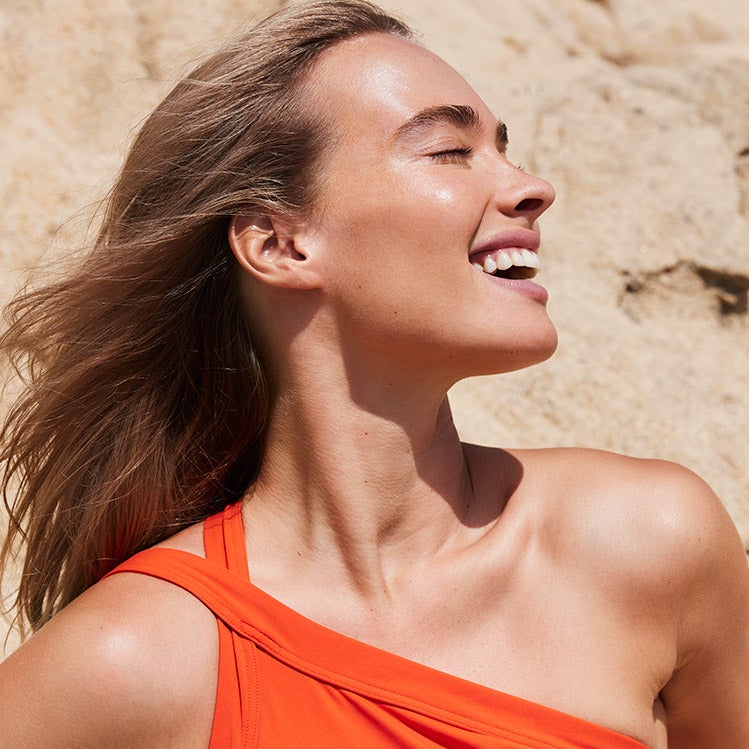
SENSORY PLEASURE
Enjoy the sun’s warm caress with peace of mind while savouring the pleasure of sensual textures and a scent of adventure. From a satiny oil to a light fluid or a melting cream... The textures feel pleasant to apply and leave no white film on the skin. Their solar fragrance evokes the sweet smell of summer with zesty harmonies of Sweet Orange and Petitgrain in the head, wafting Tiare Coconut Flower in the heart and a captivating base of Vanilla and Musk.
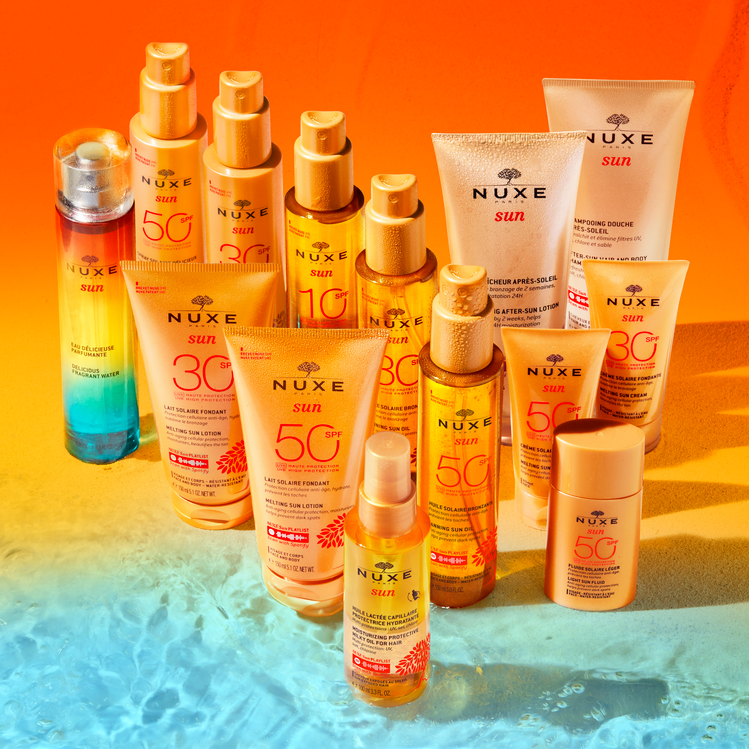
NUXE SUN BEAUTY ROUTINE
In town, on the beach or in the mountains, choose the routine that matches your phototype (skin’s sensitivity to the sun) and the exposure conditions. Excessive exposure to the sun is dangerous for health: it is advisable to avoid exposure when the sun is at its most intense, between 11 am and 4 pm. A sun care product does not provide 100% protection.
From a sun oil to a facial sun cream, sun spray or sun fluid, whatever your favourite texture, make sure you apply it liberally, carefully and evenly, at least every 2 hours and always after swimming. Don’t forget your hair too, use a hair protection oil. In the evening, gently remove UV filters, salt, chlorine and sand with the After-Sun Hair and Body Shampoo before moisturizing your skin and applying the After-Sun Milk to make your tan last longer.
Finish with a spray of Delicious Fragrant Water, the most irresistible of summer scents. Finally, for an even and natural-looking tan without sunshine, discover the Moisturizing Self-Tanning Foam.
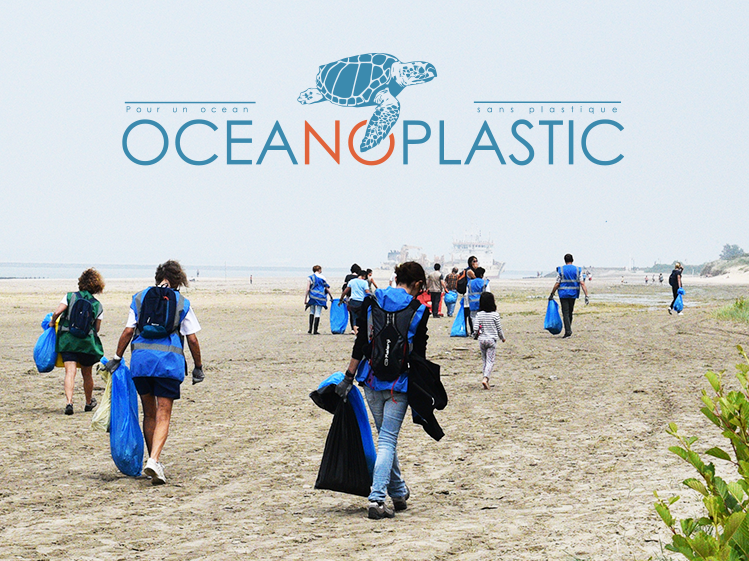
NUXE supports OCEANOPLASTIC
Protecting the oceans is an absolute priority: each year, up to10 million tonnes of plastic end up in the sea. This is a real environmental, economic and health disaster that requires us all to change our behaviour.
Alongside OCEANOPLASTIC, we are committing to tackle plastic pollution in French oceans. Since 2016, this environmental NGO has been collecting waste from the sea and along coastlines with the aim of identifying sources of plastic pollution and tackling the root causes. It also organises campaigns designed to inform, educate and raise awareness among consumers, manufacturers and authorities. The actions conducted in Martinique include 6 major collection campaigns involving a total of over 260 collectors. This represents almost 50m3 of waste that has already been removed from the Caribbean Sea with NUXE’s support.
Clean: clean formula according to NUXE for NUXE SUN protection products: a continuous improvement approach to ensure the best balance between naturalness, effectiveness, sensoriality and environmental footprint with no compromise on safety.
⁽¹⁾ In vitro test – result x2 on average across all NUXE Sun protection products in comparison with the requirements of European regulations.
⁽²⁾ With the exception of the Delicious Spray SPF30 which has 4.
⁽³⁾ Except Delicious Sun Spray SPF30, Melting Cream for the Face SPF50 and Melting Lotion SPF50.
